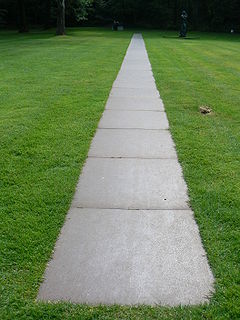Top 56 Quotes & Sayings by Carl Andre
Explore popular quotes and sayings by an American artist Carl Andre.
Last updated on April 18, 2025.
You might say that a creative person is a person who simply has a desire to have something, to add something to the world that's not there yet, and goes about arranging fort that to happen. When you desire a work of art and make it, you've added to the stock of art in the world. Artists are one of the people who can do that: add to the stock of things.
























